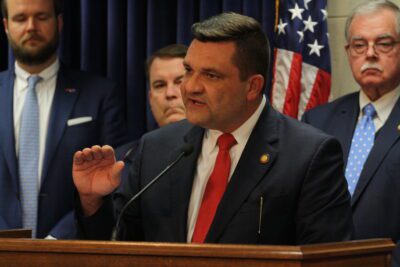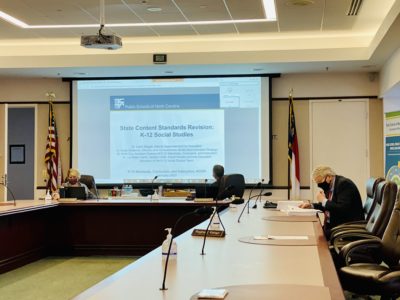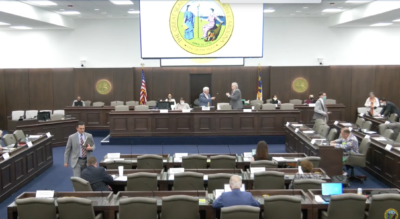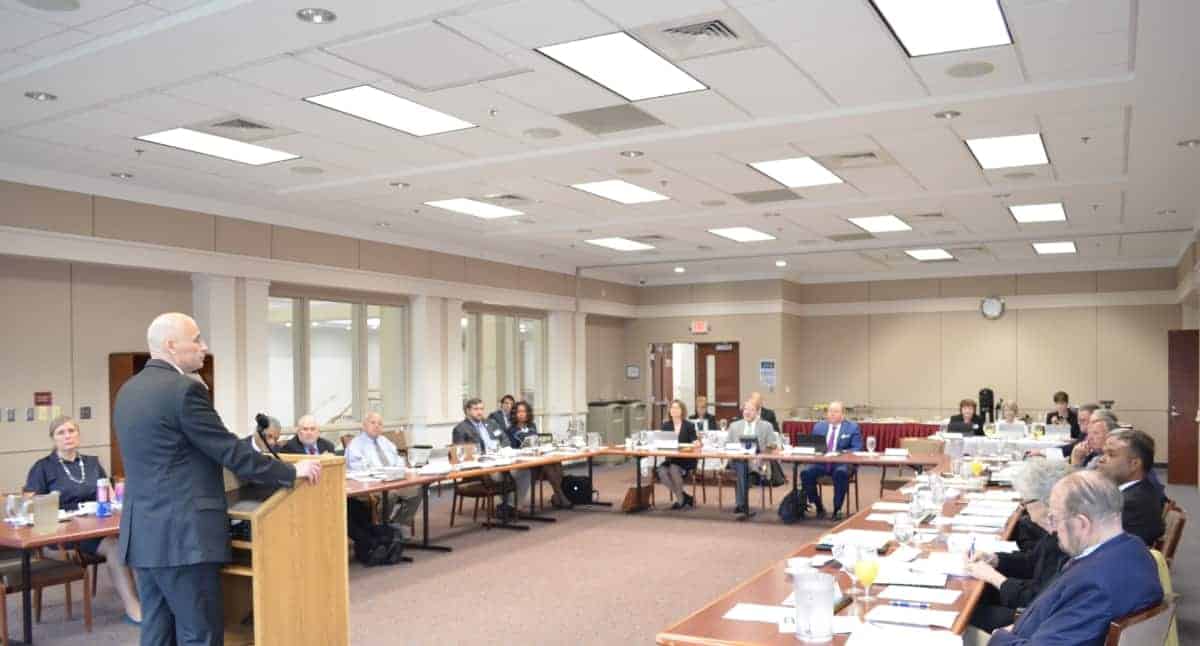There was no shortage of education news last week, and it’s impossible at this point to get to it all. Between the action at the General Assembly, regular meetings of commissions, committees, and other bodies, and the normal everyday surprises that spring up from time to time, covering education is like a game of Whac-A-Mole. So, here are some things you should know from this past week.
School construction
The House school construction bond bill from House Speaker Tim Moore, R-Cleveland, passed the full House last week.
To recap, that bill would put before voters the option to pass a bond that would include $1.5 billion for K-12 schools, and about $200 million each for the UNC System and Community College System. It would be used for construction and infrastructure needs in the various systems.
Meanwhile, the Senate has its own competing plan that would use money from the State Capital and Infrastructure Fund to raise money for school construction over the next 10 years. The SCIF gets 4 percent of state revenue to take care of the state’s debt and for capital projects for state government and the UNC System. The Senate bill proposes increasing the share of state revenue that goes to that fund to 4.5 percent, and then splitting the funds between the K-12 system, UNC and Community College Systems, and state agencies. One-third will go to K-12, one-third to the higher education systems, and one third will go to state agencies, for a total of about $2 billion each. That bill has passed the full Senate.
Just to make things more complicated, Governor Roy Cooper has a third plan — a $3.9 billion school bond that includes $2 billion for K-12 schools and $500 million each for the Community College and University of North Carolina System institutions.
It’s unclear what’s going to happen with any of these proposals. It’s likely the House and Senate will find some kind of middle ground between their two plans, and it’s even possible we won’t hear anything more about them until the budget comes out and we find some sort of hybrid of the two within its pages.
Teacher pay rankings
News dropped that North Carolina average teacher pay rankings have risen fairly dramatically.
Early last week, the National Education Association (NEA) released the salary part of its Annual Rankings report for 2017-18.
In it, the NEA found that for 2017-18, North Carolina was 34th in the nation for average teacher salary ($51,231) and 4th in the Southeast. But the big news is in the estimates for 2018-19, where North Carolina is projected to move to 29th in the nation for average teacher salary ($53,975) and 2nd in the Southeast.
Now, those projections could change once the final numbers come in, but Republicans are hailing the move as a victory for their steady teacher pay raises year after year. Meanwhile, others are questioning the notion of average teacher salary, saying that the rankings for North Carolina are skewed by veteran teachers and local district supplements, among other things.
Whatever the case, you can be sure that the estimates will be pointed to many times over the next year as politicians talk about the state of teaching in North Carolina.
State Board of Community Colleges
The State Board of Community Colleges met last Friday at Sandhills Community College in Pinehurst, North Carolina.
One of the items they went over was the Hurricane Florence Emergency Scholarship Grant Program Report, which the system has to put together to explain how money granted to offset the damage from Hurricane Florence was used.
The money was supposed to be given to students who had suffered because of the hurricane, and board members saw a breakdown of what those students were using the funding for. The majority went to living expenses, but there were a host of ways students used the grants.
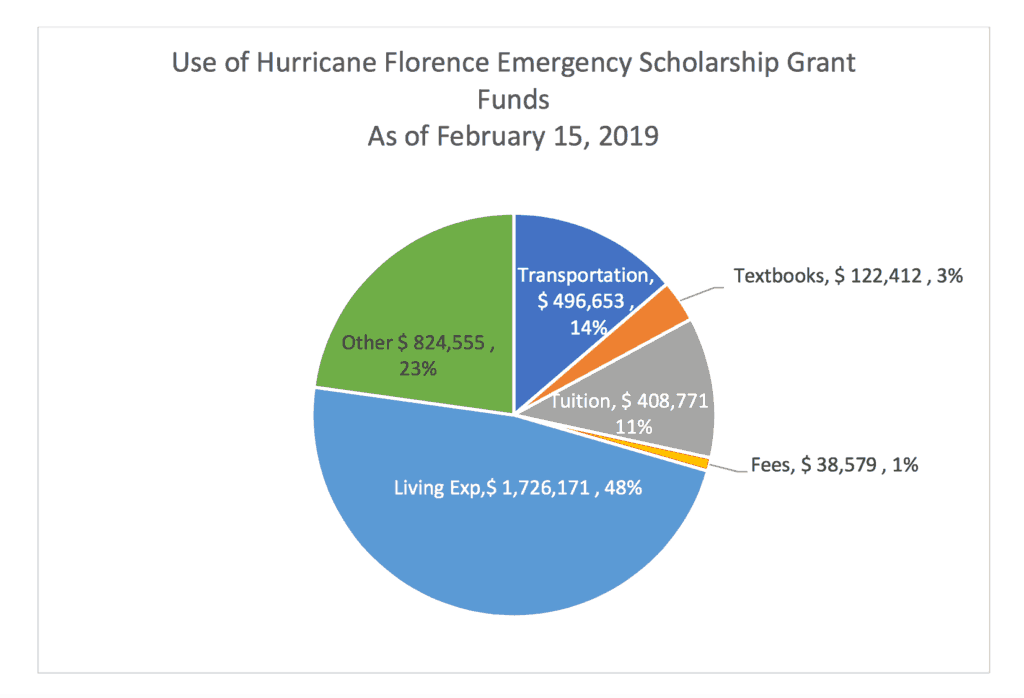
In total, about $3.6 million was given out to students at 21 community colleges around the state, with almost $1.4 million left over to be used going forward.
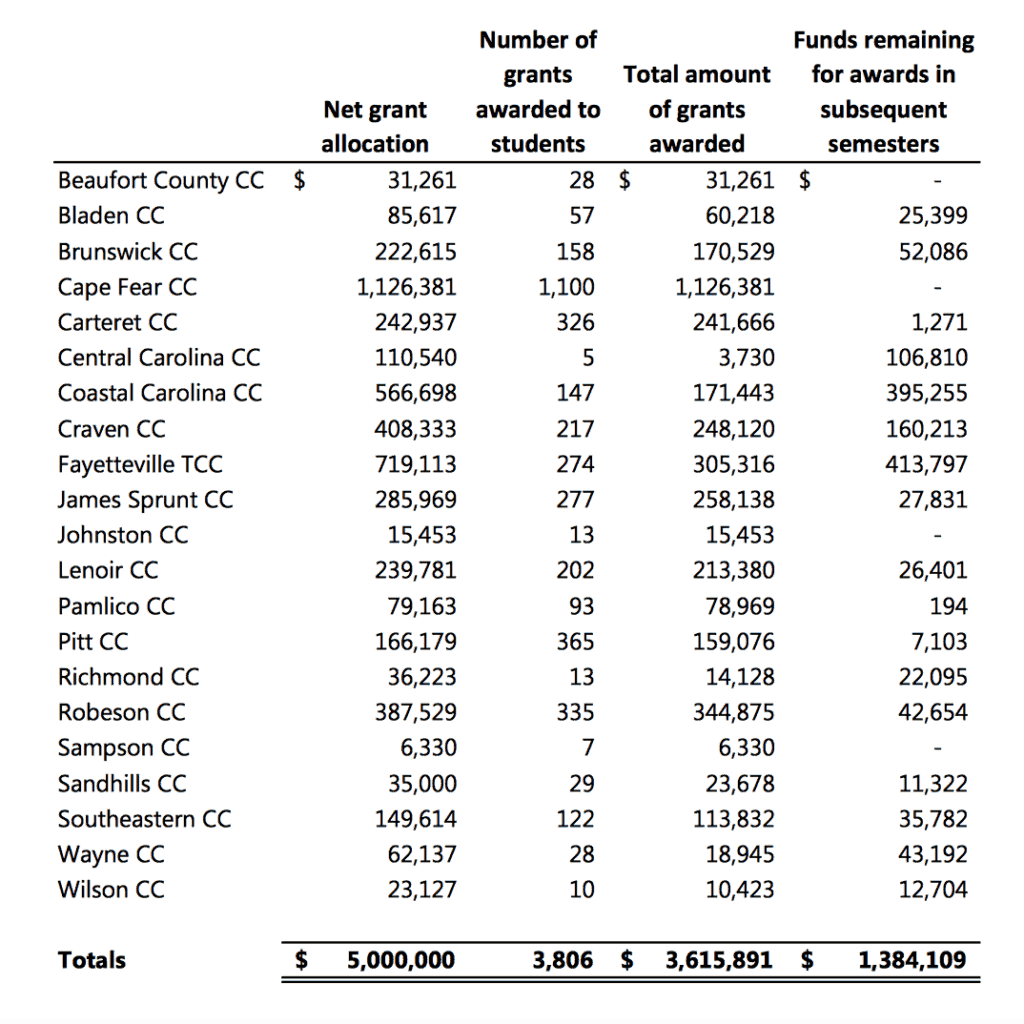
In other news, the State Board of Community Colleges approved a new president for James Sprunt Community College in Kenansville. Jimmy Carraway will be taking the reins, coming from Lenoir Community College where he was the vice president of continuing education. Read more about him here.
The State Board also approved Kimberly Gold to become the senior vice president and chief academic officer of the NC Community College System. She will be coming from Robeson Community College in Lumberton, where she has been president since 2017.
She will be taking over for Lisa Chapman, who is leaving her position to become president of Central Carolina Community College in Sanford.
Out-of-state teachers
I have been writing extensively about the rules for out-of-state teachers as the State Board of Education and The Professional Educator Preparation and Standards Commission (PEPSC) try to figure out a way to streamline the process that gets these teachers into North Carolina without lowering state standards.
Originally, PEPSC recommended allowing licensed out-of-state applicants with three or more years of teaching experience in another state who have met that state’s testing requirements to start teaching in North Carolina without going through extra hoops.
The State Board worried that the testing requirements of other states wouldn’t be up to snuff, and since then the two bodies have spent hours trying to come up with a plan. The most recent iteration discussed at the State Board would use EVAAS data from institutions of higher education to vet the standards of incoming teachers from out-of-state, but Board members still weren’t comfortable that they had the right strategy in place.
PEPSC took up the issue again last week and, despite extensive discussion, didn’t come up with a plan. The State Board wants them to come back with further recommendations that synthesize the conversations and concerns brought up at this month’s State Board of Education meeting. PEPSC tabled the plan until next month, where they will continue trying to hammer out a solution.
PEPSC secretary Ann Bullock, dean of Elon University’s School of Education, said she was the one to actually table the discussion until next month.
“It just didn’t seem like we were making any progress on it,” she said. “That people needed to marinate on it and come back around to it.”
The whole reason this is important is because North Carolina is in need of teachers, and bringing them in from out-of-state is seen as one possible way to meet the demand.
Bullock said the crux of the difficulty everybody is having comes down to fairness.
“There is this tension between providing enough teachers … versus making what out-of-state teachers do equitable with what students who come through EPPs (Educator Preparation Programs) do,” she said.
Our most recent article on the plan as it has traveled from PEPSC to the State Board and back again includes the latest information and links to prior coverage.
We live streamed the PEPSC meeting, so you can check it out below.
https://www.facebook.com/educationnc/videos/2807094022634915/
The Education Trust
The Education Trust held a convening in Charlotte last Thursday and Friday called “Keeping Our Eye on the Ball: Making Sure Equity Matters.” The goal of the event was to keep a focus on equity and make sure students who are often overlooked get the education they deserve. At the event, Ed Trust shared research and analysis on issues such as social emotional learning and early childhood education.
Check out #equitymatters on Twitter to see some of the conversation from the event.
Recommended reading
